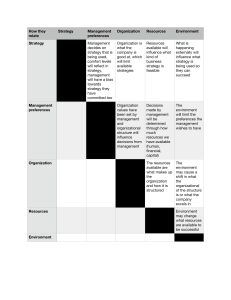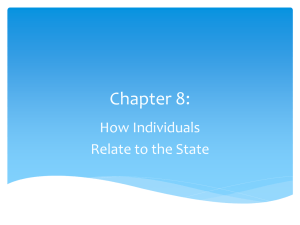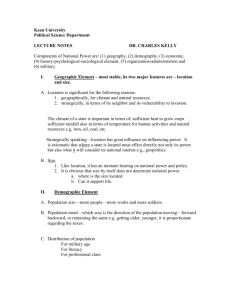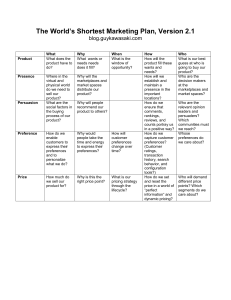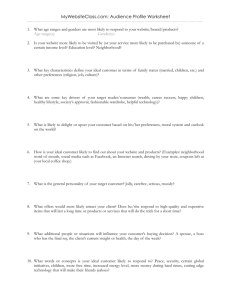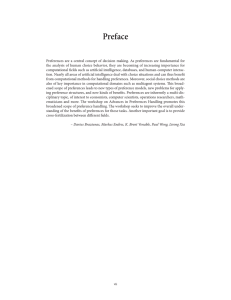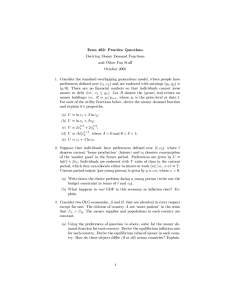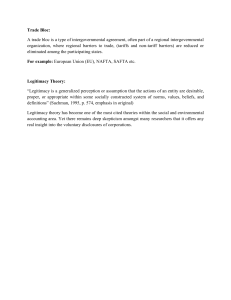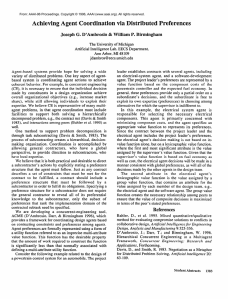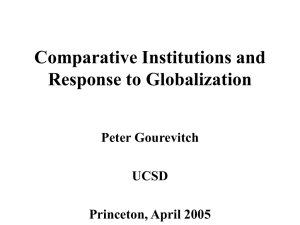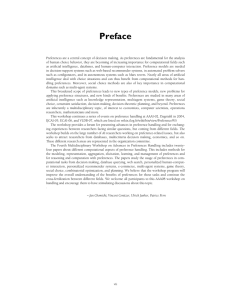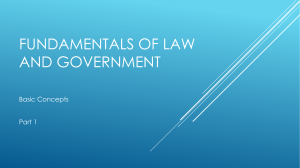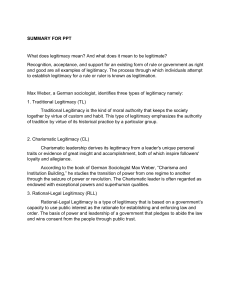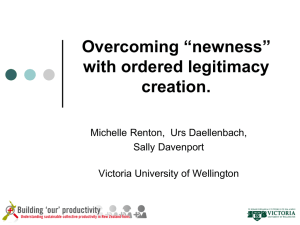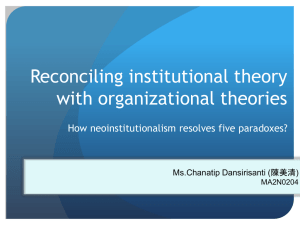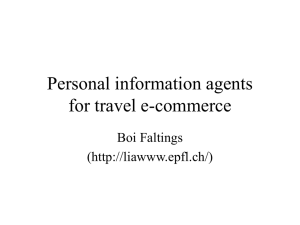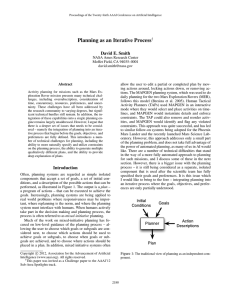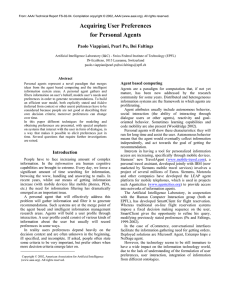17.523 / Lecture Notes INTERNATIONAL DIMENSIONS OF NATIONAL ETHNOPOLITICAL CONFLICTS
advertisement
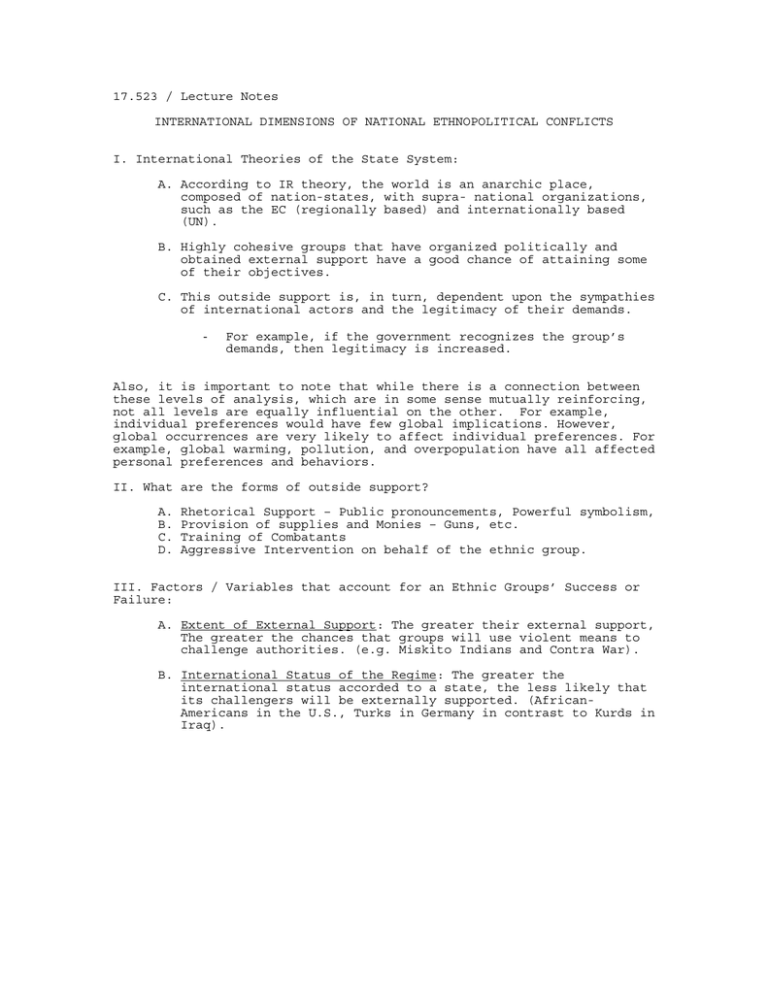
17.523 / Lecture Notes INTERNATIONAL DIMENSIONS OF NATIONAL ETHNOPOLITICAL CONFLICTS I. International Theories of the State System: A. According to IR theory, the world is an anarchic place, composed of nation-states, with supra- national organizations, such as the EC (regionally based) and internationally based (UN). B. Highly cohesive groups that have organized politically and obtained external support have a good chance of attaining some of their objectives. C. This outside support is, in turn, dependent upon the sympathies of international actors and the legitimacy of their demands. - For example, if the government recognizes the group’s demands, then legitimacy is increased. Also, it is important to note that while there is a connection between these levels of analysis, which are in some sense mutually reinforcing, not all levels are equally influential on the other. For example, individual preferences would have few global implications. However, global occurrences are very likely to affect individual preferences. For example, global warming, pollution, and overpopulation have all affected personal preferences and behaviors. II. What are the forms of outside support? A. B. C. D. Rhetorical Support – Public pronouncements, Powerful symbolism, Provision of supplies and Monies – Guns, etc. Training of Combatants Aggressive Intervention on behalf of the ethnic group. III. Factors / Variables that account for an Ethnic Groups’ Success or Failure: A. Extent of External Support: The greater their external support, The greater the chances that groups will use violent means to challenge authorities. (e.g. Miskito Indians and Contra War). B. International Status of the Regime: The greater the international status accorded to a state, the less likely that its challengers will be externally supported. (AfricanAmericans in the U.S., Turks in Germany in contrast to Kurds in Iraq).
